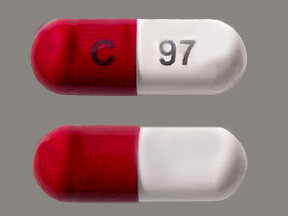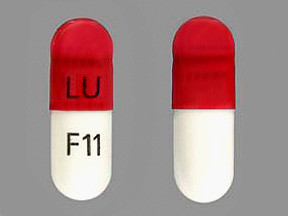CEFADROXIL - ORAL
PHONETIC PRONUNCIATION: (SEF-a-DROX-il)
COMMON BRAND NAME(S): Duricef
GENERIC NAME(S): cefadroxil
Uses
USES: This medication is a cephalosporin-type antibiotic used to treat a wide variety of bacterial infections (e.g., strep throat, skin and urinary tract infections). It works by stopping the growth of bacteria. This antibiotic treats only bacterial infections. It will not work for viral infections (such as common cold, flu). Using any antibiotic when it is not needed can cause it to not work for future infections.
How to use CEFADROXIL - ORAL
HOW TO USE: Take this medication by mouth usually once or twice a day, or as directed by your doctor. You may take this medicine with food if stomach upset occurs. For the best effect, take this antibiotic at evenly spaced times. To help you remember, take this medication at the same time(s) every day. Continue to take this medication until the full-prescribed amount is finished even if symptoms disappear after a few days. Stopping this medication too early may allow bacteria to continue to grow, which may result in a relapse of the infection. Inform your doctor if your condition persists or worsens.
Side Effects
Precautions
Interactions
Overdose
Images

- color
- orange
- shape
- oblong
- imprint
- 93 3196, 93 3196

- color
- orange
- shape
- oblong
- imprint
- 93 3196, 93 3196

- color
- orange
- shape
- oblong
- imprint
- 93 3196, 93 3196
Reviews
Faq for CEFADROXIL - ORAL
Cefadroxil is an oral antibiotic that is commonly prescribed to treat various bacterial infections such as urinary tract infections, skin and soft tissue infections, respiratory tract infections, and tonsillitis.
Cefadroxil belongs to a class of antibiotics known as cephalosporins. It works by inhibiting the growth of bacteria and killing them, thus helping to treat the infection.
The dosage of cefadroxil can vary depending on the condition being treated and the patient's age. It is typically taken two to four times a day, with or without food. It is important to follow the prescribed dosage and duration as instructed by your healthcare provider.
Common side effects of cefadroxil can include diarrhea, nausea, vomiting, stomach pain, and rash. If you experience any severe or persistent side effects, it is important to consult your doctor.
Cefadroxil is generally considered safe to use during pregnancy and breastfeeding, but it is always recommended to consult with your healthcare provider before taking any medication.
Cefadroxil may interact with certain medications, such as probenecid, which can increase the levels of cefadroxil in the body. It is important to inform your doctor about all the medications and supplements you are currently taking to avoid any potential interactions.
Cefadroxil usually starts working within a few days of starting the medication. However, it is important to complete the full course of treatment, as prescribed by your doctor, to ensure the infection is fully treated and does not return.
Cefadroxil can be taken with or without food. However, taking it with food may help to reduce any potential stomach upset.
It is generally recommended to avoid consuming alcohol while taking any antibiotics, including cefadroxil. Alcohol can interfere with the effectiveness of the medication and also increase the risk of side effects.
Disclaimer
IMPORTANT: HOW TO USE THIS INFORMATION: This is a summary and does NOT have all possible information about this product. This information does not assure that this product is safe, effective, or appropriate for you. This information is not individual medical advice and does not substitute for the advice of your health care professional. Always ask your health care professional for complete information about this product and your specific health needs.


No Reviews Yet